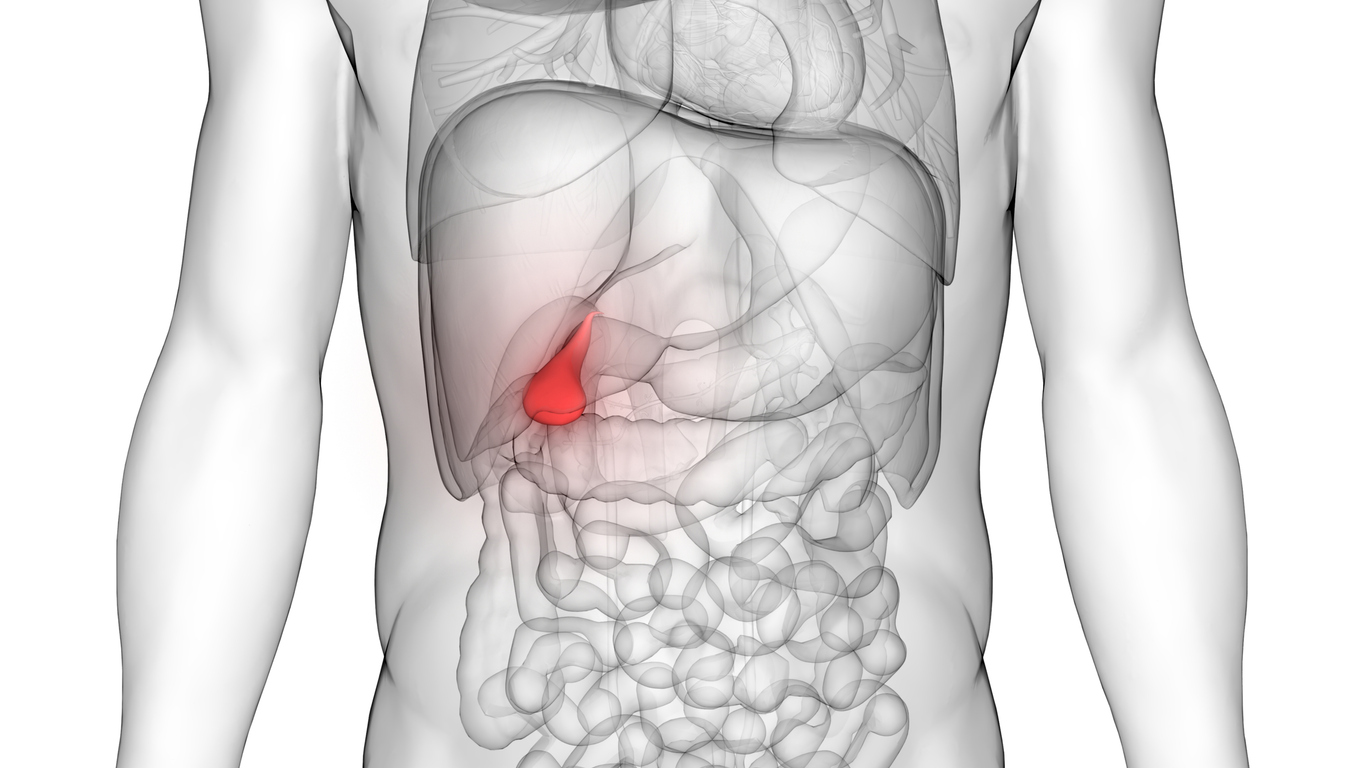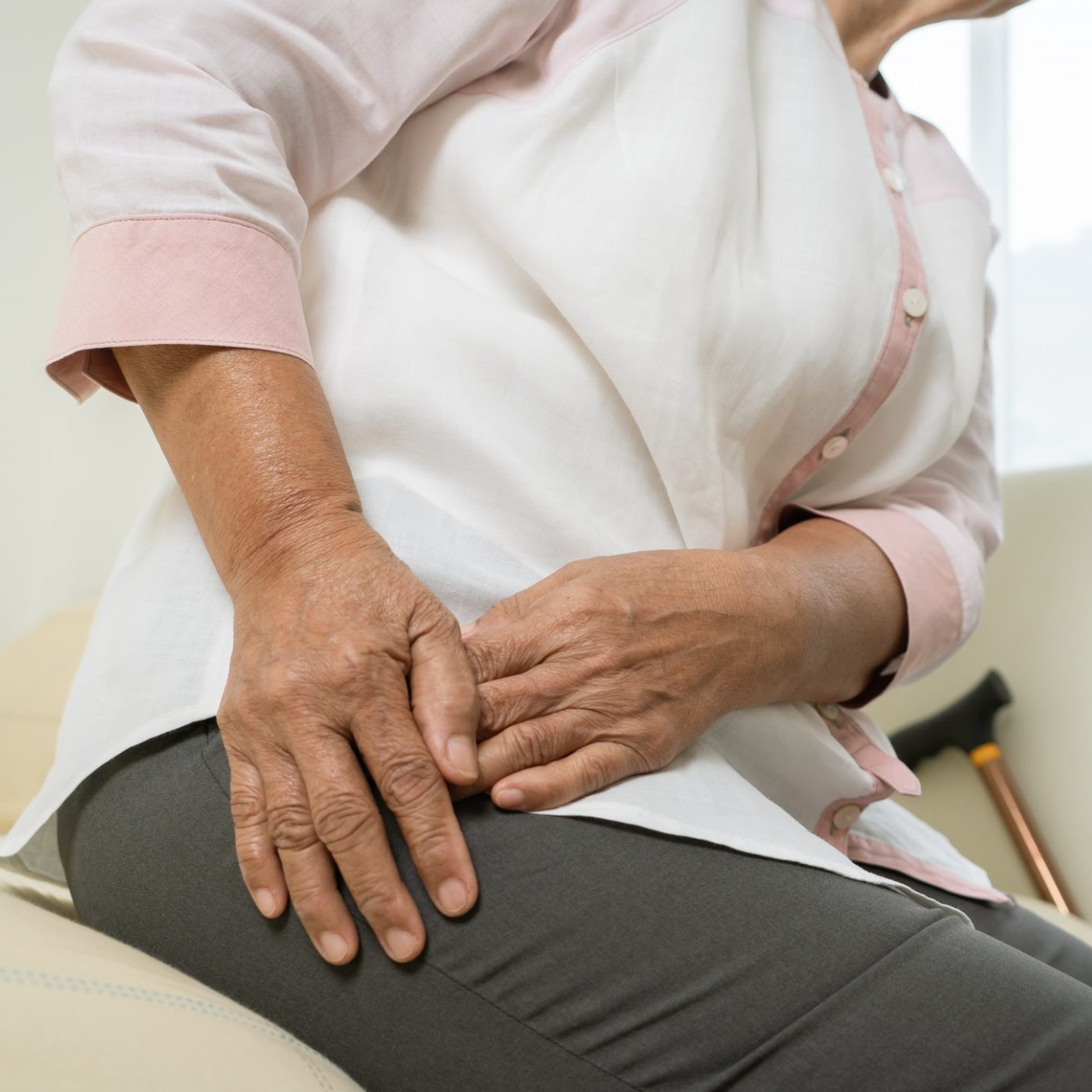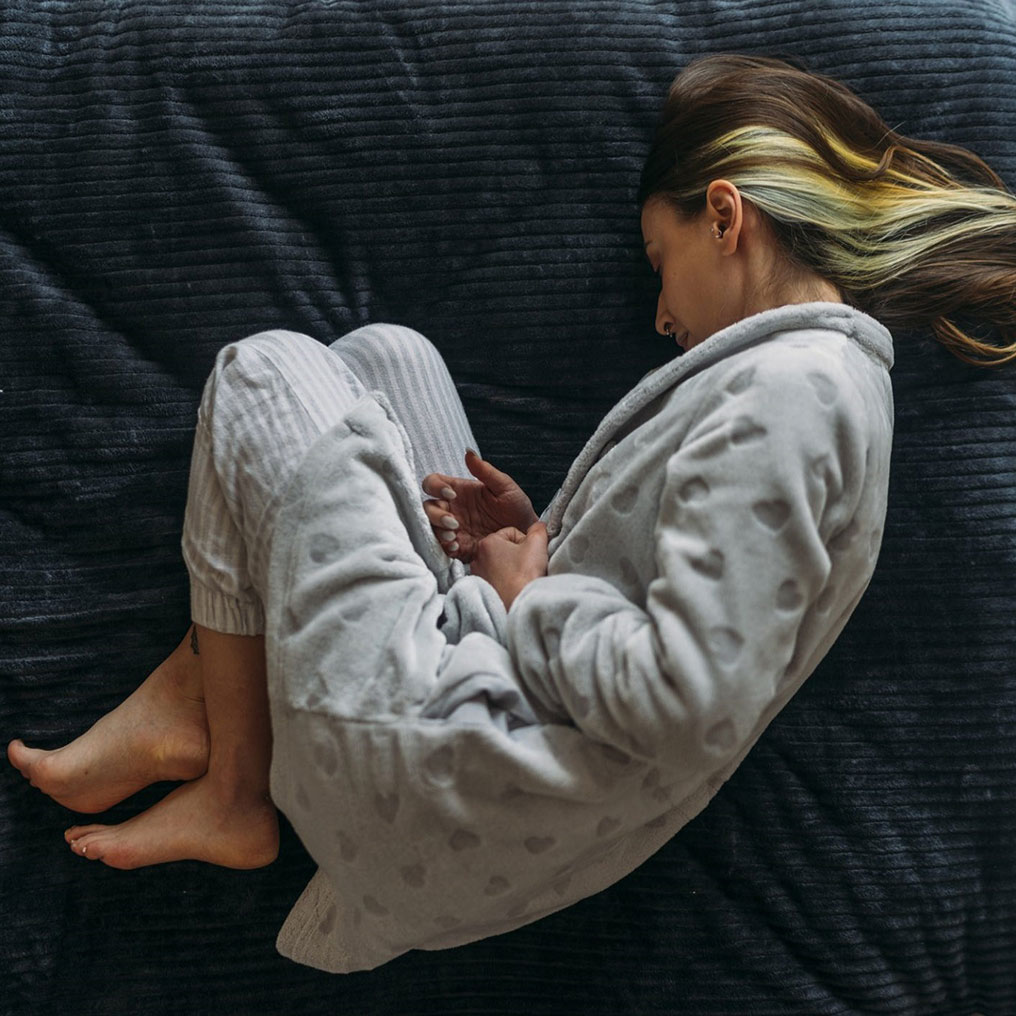Gallbladder Questions Answered

March 18, 2021
What is the gallbladder?
Your gallbladder is a pear-shaped organ under your liver. It stores bile — the fluid your liver makes to break down fats in the foods you eat. As your stomach and intestines digest food, your gallbladder releases bile through the common bile duct — the tube that connects your gallbladder and liver to your small intestine.
What are the symptoms of gallbladder disease?
If you have gallbladder disease, you may experience these symptoms:
- Sharp pain in the upper right side of your abdomen — often under the ribs, sometimes radiating to the back, and more commonly experienced after eating meals (especially those high in fat)
- Bloating
- Nausea and vomiting
- Low fever (if infection is present)
- Jaundice (yellowing of the skin) if gallstones block the common bile duct
Can your gallbladder burst?
It is possible for a gallbladder to burst, or rupture. Severe inflammation, infection or blunt injury from something like a car accident can lead to a rupture. If you’re experiencing symptoms of a gallbladder rupture, such as vomiting, sharp pain in the abdomen, fever or yellowing of the skin and eyes, you should seek medical attention immediately.
Do I need my gallbladder?
The gallbladder is not a vital organ. While its function is to store bile, you can live without it. That’s why the gallbladder is commonly removed when it is diseased. Without a gallbladder, bile will drain directly from the liver through the common bile duct and into your intestine.
What is the best treatment for gallbladder disease?
If you have gallstones that are not causing symptoms or you had only one “attack,” your doctor may monitor you and recommend you avoid fatty foods. Fat stimulates the gallbladder to release bile, so a lower-fat diet may be helpful. However, most patients that have recurring and chronic symptoms, will likely be recommended for surgery.
Some gallstones may pass from the gallbladder into the common bile duct and cause pain and jaundice. If this occurs, these stones can be removed from the common bile duct using a technique called endoscopic retrograde cholangiopancreatography (ERCP), performed through a tube inserted down your throat and into your digestive tract. More often, the gallstones do not pass out of the gallbladder and only the gallbladder needs to be surgically removed during an operation called cholecystectomy.
Thanks to advances made in robotic surgical approaches, people can now have their gallbladder removed through a single incision in the navel. Many individuals can go home the same day, have less pain, and start living more comfortable lives. Robotic surgery is especially advantageous for complex gallbladder cases where inflammation, infection, or chronic scarring is present.
How does robotic surgery work?
The robotic surgical system is operated by the surgeon while sitting at a console, controlling instruments that move the robot’s arms. The instruments provide the surgeon with exceptional articulation to move in many directions, enabling him or her to meticulously navigate around the area where the gallbladder sits.
“The benefits of the robotic surgical platform result in better outcomes for our patients,” explained Stephen G. Pereira, M.D., chief, Division of General Surgery and director, Robotic General Surgery at Hackensack University Medical Center. “With robotics, we are able to care for patients with the most complex gallbladder and bile duct disorders.”
What should I expect after gallbladder surgery?
Robotic gallbladder removal is typically an outpatient procedure, so you can go home the same day as your operation. About 20% of patients experience diarrhea, gas, and/or bloating afterward, but these symptoms usually go away after a few weeks.
The material provided through HealthU is intended to be used as general information only and should not replace the advice of your physician. Always consult your physician for individual care.
How Seniors Can Increase Hip Strength

Increasing hip strength can reduce risk of falls and fractures and make day-to-day activities more enjoyable.
Signs of an Enlarged Thyroid

Located at the base of the neck, the thyroid produces hormones that regulate a variety of crucial bodily functions.

What Causes Pain in My Hips?
You don't have to live with hip pain. Learn about the most common causes, and your options for treating hip pain.

Why Do My Ears Feel Clogged? 4 Common Causes & Treatments
Experts share the most common causes of clogged ears, and what to do if you experience this sensation.

How Isolation Affects Cognition
Social isolation can cause significant stress, leading to depression and cognitive problems.

When to Take Stomach Pain Seriously
Ignoring or brushing off bowel discomfort is never a good idea, as this can be the sign of a serious health issue.